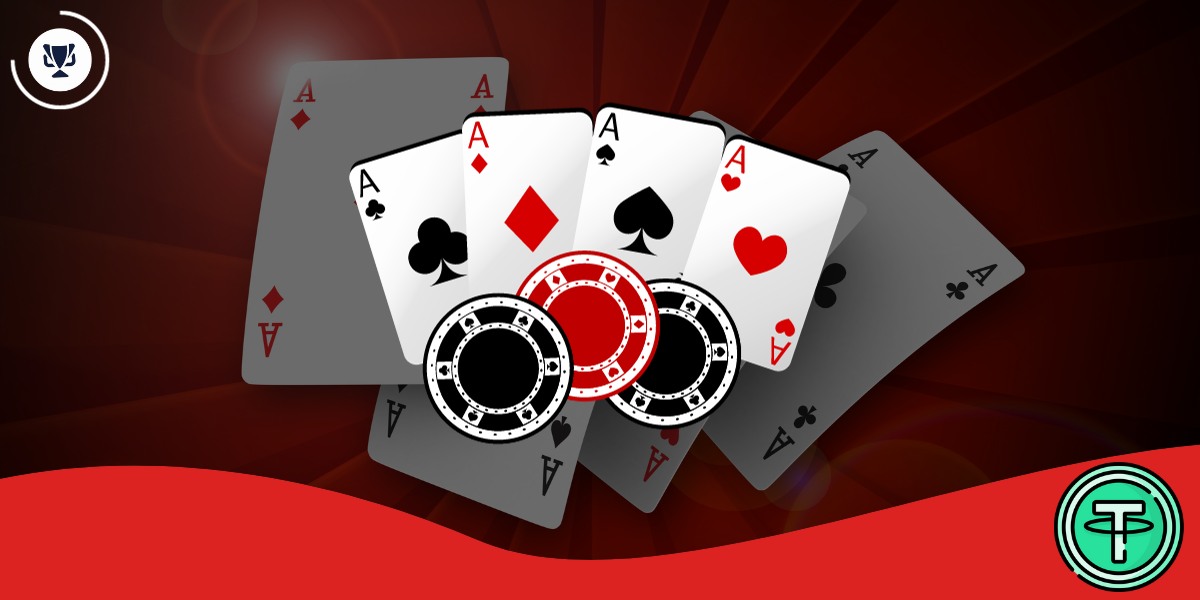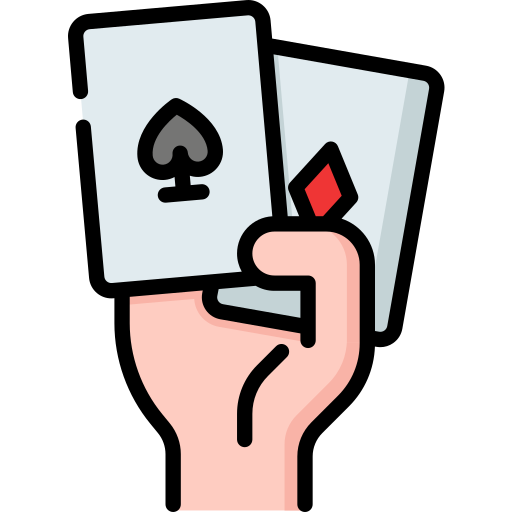Among all the casino games out there, Poker is by far the most popular. It’s a game of skill with a twist of luck which makes it incredibly appealing to players. The best part is that you can now play it with cryptocurrencies at Tether poker casinos in Poland.
| Rank | Bookmaker | Rating | Bonus | Get bonus |
|---|---|---|---|---|
| 1 |  Arlekin Casino | 4.8/5 | Welcome Bonus up to 18,500 PLN | PlayRead review |
| 2 |  Bitstarz | 4.5/5 | Bonus Package Up to 5 BTC + 180 free spins | PlayRead review |
| 3 |  7Bit | 4.5/5 | 100% Bonus up to 1.5 BTC + 100 Free Spins | PlayRead review |
| 4 |  BC.Game | 4.5/5 | GET 270% OF FIRST DEPOSIT | PlayRead review |
| 5 |  Cloudbet | 4.8/5 | 100% match bonus of up to 5 BTC | PlayRead review |

The objective of Poker USDT is to win the pot, which is essentially the sum of all bets made in a hand. You can win either by having the best hand or by bluffing effectively so others fold their hands.
In online poker, every player gets a turn to bet, check (not bet, but stay in the game), call (match another player's bet), raise (increase the bet), or fold (give up the hand). The actions typically move clockwise around the table.
One of the most important things to remember is the position at the table. Your position affects when you act during a hand. Being 'on the button' means you're the last to act in three out of the four betting rounds—after the flop, turn, and river. This is a powerful spot because you get to see how others act before you make your move.
In poker, understanding the value and ranking of cards is essential if you want to master it. As you already know, a standard deck consists of 52 cards, divided into four suits. Hearts, diamonds, clubs, and spades.
In most poker games, the Ace is the highest value card, followed by King, Queen, Jack, and then 10 through 2 in descending order.
However, an Ace can also be used as a low card in a 5-4-3-2-A straight.
All suits are equal in value, meaning no suit is higher than another in USDT poker. The ranking of cards is vital in determining the strength of a hand, especially in games where high cards hold significant importance.
Here is the table of hand combinations to give you an idea of what goes on in a round.
| Hand Name | Cards | Payout |
|---|---|---|
| Royal Flush | A, K, Q, J, 10 (same suit) | 100 to 1 |
| Straight Flush | Any 5 consecutive cards (same suit) | 50 to 1 |
| Four of a Kind | 4 out of 5 same-level cards | 40 to 1 |
| Full House | 3 same-level cards and a pair | 30 to 1 |
| Flush | 5 cards of the same suit | 20 to 1 |
| Straight | Any 5 consecutive cards (different suits) | 7 to 1 |
| Three-of-a-Kind | 3 same-level cards with 2 random cards | 7 to 1 |
| Two Pair | 2 different pairs | 7 to 1 |
| Pair | 1 pair and 3 random cards | 1 to 1 |
| High Card | Only 1 high card (A, K, Q, J) | 1 to 1 |
Keep in mind that these values can change depending on the casino’s paytable and the exact variant of Tether poker you play.
When you try to play Tether poker in Poland, you’ll find 2 distinct types. The RNG poker games and the live dealer ones. Of course, there is video poker as well but that’s a different post on its own.
In this section, let’s look into the main differences between RNG poker and live dealer poker.
| Factor | RNG Poker | Live Dealer Poker |
|---|---|---|
| Technology | RNG poker uses computer algorithms to ensure card distribution is random and fair | Live dealer poker features real human dealers which maintain the authenticity of the game |
| Speed | Faster gameplay as cards are dealt and shuffled electronically | Slower gameplay mirroring traditional casinos, with physical card shuffling and dealing |
| Social Aspect | Offers privacy and anonymity since players are usually represented by avatars or usernames | Offers a social experience with interaction between players and the dealer |
| Ease of betting | More hands per hour due to automated processes, leading to a faster-paced game | Higher minimum betting limits compared to RNG poker |
| Table limits | Typically allows for lower betting limits, making it accessible for players with smaller bankrolls | Limited to one game at a time, emphasizing focus on each hand |
| No. of games | Players can engage in multiple games simultaneously | Physical tells and player psychology play a significant role |
| Strategies | Absence of physical tells; players rely more on betting patterns and strategies | Creates an immersive casino-like atmosphere, often streamed from a professional studio |
| Availability | Often includes a wider variety of game types and innovation | Usually offers standard poker variants, similar to those found in physical casinos |
Poker strategies are the tools you wield to turn the tides in your favor. They're not just about the cards you're dealt but also how you play them, combining psychology, mathematics, and keen observation. And poker is one of the very few games where you can actually use them!
This classic strategy involves being selective about the hands you play but betting and raising aggressively when you decide to play. It helps in building a solid table image and can lead to more wins with strong hands.

Bluffing is an art in poker. The key is not to bluff too often, but when you do, ensure your betting patterns can convince opponents you have a strong hand.

Your position at the table greatly affects your strategy. Playing in a 'late' position (being one of the last to act) gives you more information on your opponents' actions.

Pay close attention to your opponents' betting patterns, body language, and table talk. Over time, you may pick up on their 'tells' (subtle signs that indicate the strength of their hand).

Yes, you can play poker using USDT at online casinos that accept Tether as a payment method.
Poker is a blend of chance and skill, where players' decisions significantly impact the outcome alongside the random deal of cards.
Yes, many online casinos offer video poker games that can be played using Tether (USDT) in Poland.
Winnings in poker can vary widely depending on the stakes and the players' skill levels. As for hands, Royal Flush pays 100 to 1 in most cases.